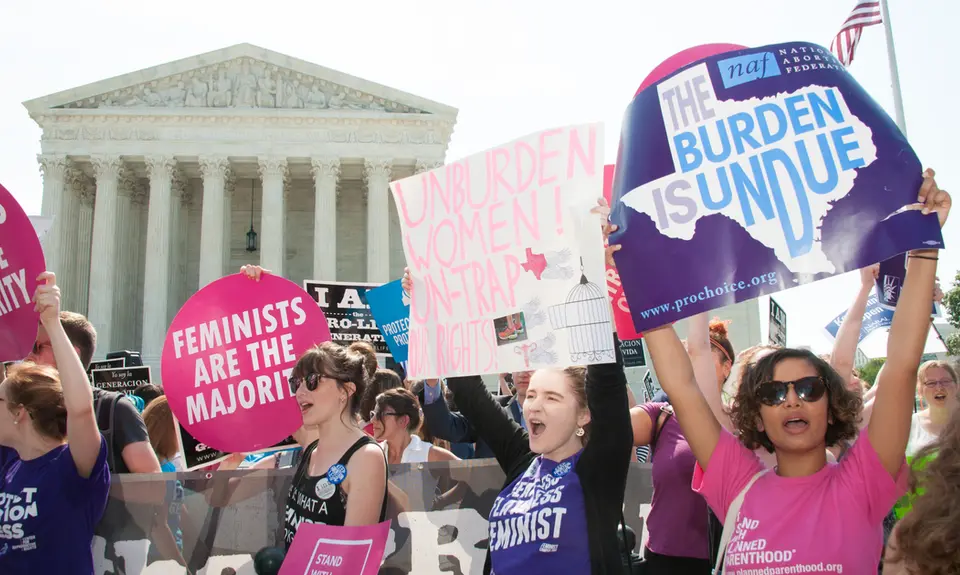“Confirmed Judges, Confirmed Fears” is a blog series documenting the harmful impact of President Trump’s judges on Americans’ rights and liberties. Cases in the series can be found by issue and by judge at this link.
In an unsigned opinion on September 10, 2021, Trump Fifth Circuit judges Kyle Duncan and Kurt Engelhardt effectively continued their prior orders that prevented district court hearings on a federal challenge to Texas’ draconian law that enlists private vigilantes to enforce a ban on abortion care after six weeks of pregnancy. The September 2021 opinion was in Whole Woman’s Health v Jackson.
As discussed in earlier entries in this blog, doctors and abortion care providers filed a federal court challenge to an extremely restrictive Texas law that effectively bans abortion care after six weeks of pregnancy and deputizes all private individuals, rather than state officials, to enforce the law through burdensome state court civil suits against providers and others who help someone get abortion care. Even though a district court had agreed to hold a hearing on a motion for a preliminary injunction against the law before it took effect, Trump judges Duncan and Engelhardt, joined by very conservative Judge Edith Jones, issued peremptory orders with no explanation that cancelled the hearing and refused to consider the request for an injunction or allow the district court to do so. The Trumpified Supreme Court also refused to take action and then issued a 5-4 ruling specifically allowing the law to continue in effect.
In response to pending motions and in an effort to “give” reasons for its peremptory orders that it purportedly could not provide before because of the “compressed timeframe,” the Fifth Circuit panel including Trump judges Duncan and Engelhardt issued an unsigned opinion on September 10. The opinion effectively continued in effect the panel’s prior orders that prevented any district court action on the challenge to the Texas law, and ordered expedited consideration of a motion to dismiss the case by an anti-choice activist who was one of the defendants in the suit.
The panel’s reasoning was similar to the rationale used by the 5-4 Supreme Court majority that allowed the law to continue in effect. The panel maintained that no state official has an “enforcement connection” with the Texas law, and that therefore there could be no claim against them that could justify federal court action. The panel further claimed that the case against the anti-abortion activist involved issues that are “inextricably intertwined” with the issues raised by the state defendants, so that it was appropriate to continue to prevent the district court from acting on the preliminary injunction request, and instead to expedite the activist’s appeal. In effect, the panel’s order continued to block any hearing on an injunction or any other action on the federal challenge by the providers to the Texas law.
The best response to the panel’s order comes from the dissents in the recent Supreme Court ruling on the Texas case. Justice Breyer explained that the state’s effort to “delegate” enforcement power concerning the ban to private parties should not prevent a court from ordering appropriate relief where constitutional rights are threatened. As Chief Justice Roberts explained, the proper course would have been to “grant preliminary relief” against the law while the courts “consider whether a state can avoid responsibility for its laws” as Texas is trying to do. The Fifth Circuit panel never even mentioned that possibility in its opinion.
Fortunately, other action is pending against the draconian Texas law, including a DOJ lawsuit seeking to enjoin and invalidate the statute. As a result of the Fifth Circuit ruling made possible by Trump judges Duncan and Engelhardt, however, action on the lawsuit filed by doctors and providers against the law will continue to be blocked. The ruling again shows the importance, as part of our fight for our courts, of continuing to confirm Biden federal judicial nominees who will respect reproductive and other constitutional rights.
